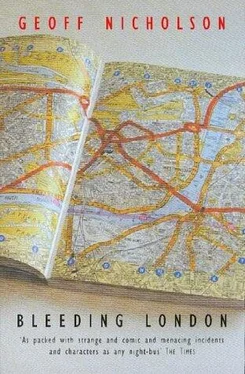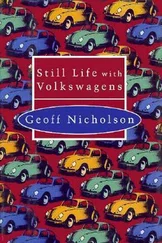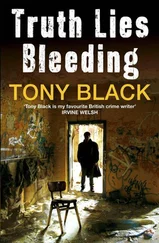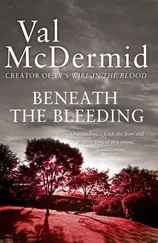Then the other man said, “Well, I got mugged coming through Soho last week. It was late. I was fairly drunk. I guess I must have looked a bit of a target. These three really young kids appeared out of nowhere, surrounded me and one of them said, “Give me your wallet or I’ll kill you.” So obviously I handed over my wallet. I mean, I don’t think he really would have killed me, but you can’t take any chances in London these days, can you?”
Then the woman said, “Well, a friend of mine, in Putney, a burglar got into her bedroom while she was asleep, held a gun to her head, kept her captive till the next morning and raped her half a dozen times. She’s still in therapy.”
There was a short silence then the two men said simultaneously, “You win, we can’t compete with that,” and all three of them laughed very, very loudly.
♦
The coronation of Richard I. The Jews have been forbidden to enter the Abbey and take part in the celebrations. They may be essential to the wealth of the country, their presence may have been encouraged by William I because of their financial acumen, but they are still not like us, and they demand a high price for the help. They are usurers. Their religion demands strange rituals. Their exclusion seems only natural. However, one or two of them, apparently more knowing than the rest, have come to the celebrations, believing that they will be tolerated given that they have come with expensive gifts. And sure enough the king himself is prepared to be tolerant. He indulges them quite willingly, enjoys their company, but he has reckoned without certain zealous elements in the court, who, discovering this Jewish presence, immediately seek physical retribution. A good beating is administered to the Jews right there at the coronation, and what happens in the Abbey soon spreads to the world at large.
What better way to celebrate a new reign than to take part in a pogrom? Soon a full-scale purge is taking place in the streets of London. While coronation celebrations continue in the Abbey, a mob outside is setting fire to the houses of Jewish settlers and murdering the occupants as they run out in terror. The king does his best to ignore what he knows is taking place, and he doesn’t find it so hard. After all, the Jews are not true citizens. They do not have the full protection of his laws. And yet the noise from the streets, the baying of the mob and the screams of the victims, is loud enough to quite put a damper on the festivities. The king does what any man might do in that situation. He tells his minstrels to play louder and drown the terrible noise from outside.
♦
Postman’s Park, the former churchyard of St Botolph, Alders-gate, and on the wall a series of plaques commemorating heroic but ordinary deaths: Alice Ayres, who saved three children from a burning house in Union Street, Borough, but died in the process. Thomas Simpson, who died of exhaustion after rescuing people who’d fallen through the ice on Highgate Ponds. Mary Rogers, a stewardess on the Stella who gave up her life belt and voluntarily went down with her ship.
♦
I look at the Millbank Tower and Centrepoint and I wonder why we in London have never dreamed up a Godzilla, a cheap science fiction destroyer of cities.
♦
John Alington, a British farmer and altruist, took seriously his role as educator of his workers. He created a model of the world in his farm pond and used it to teach his employees geography. Then in 1851 he said he would take them to the Great Exhibition, but before they went he instructed them to build a large-scale model of the streets from King’s Cross to Hyde Park, so they’d know the route when they arrived in London. The model was a complete failure, out of scale, the workmanship shoddy. It scarcely at all resembled the London that Alington knew. It was clear to him that if his men were not capable of building a model of the city, they would be quite incapable of finding their way around it. He summarily cancelled their trip to London.
♦
At the top of a distant staircase in the Victoria and Albert, there’s an intricate scale model of Vauxhall Gardens. The reality is gone. A hundred years of pleasure, of promenading and feasting, of nightingales and fountains, pavilions and statuary, temples, fireworks and on one occasion a re-staging of the Battle of Waterloo.
♦
In the Museum of London, a model of mid-seventeenth-century London, and as a crowd gathers round the model the lights go down and a voice on tape starts reading from Pepys’ Diary , describing the Fire, and gradually all over the darkened city little electrical lights begin to flicker, impersonating fire.
♦
Another town with fire gaps. After the American firestorm raid on Tokyo, Hiroshima prepares itself for the worst. Expecting incendiary raids they create a series of fire gaps in the town. Wooden buildings are demolished to leave large blank areas cleared of debris, places where there is nothing to burn. They think they are ready for the coming fire. They have no idea. Oh, Judy.
♦
In Lamb’s Conduit Street, an undertaker’s. I can see that undertakers must always have trouble deciding what to put in their shop windows: flowers? marble headstones? skulls and old bones? This one had solved the problem neatly; antique maps of old London.
♦
I thought of Xanadu and Troy and Babylon and Manhattan, those mythical cities with their palaces and their projects, their structurings and enfbldings. And I thought that London is mythical too, created in the image of each of its inhabitants, newly imagined with each new citizen, with each new attempt to describe it.
♦
As I walk I realize I am no longer the person I was. The middle-aged man in the cashmere overcoat who looks at his reflection in the shop window would be unrecognizable to the boy, the youth, the young man he has previously been. I think that these younger selves would have been contemptuous of that man, complacently certain that they would never end up like him. Probably I’m no longer even the man that Judy fell in love with. I’m certainly not the man that Anita married.
I know too that it is not merely a question of change and growth, not even of decay, but rather of demolitions, regroupings, blottings out. The opinions, the tastes, the most passionately held beliefs have all disappeared in a blitz of slum clearance and redevelopment. Yes, a man is like a city, a site of erasures, of subsidence, in-fill, subdivision and occasional preservation orders. But there is no blueprint, no foolproof map, no essential guide book.
I feel at home in the city, I feel part of its fabric. It feels as alive as I do, but with a much longer life-span. London wasn’t built in a day, and I know that it will long outlive me, though in what, and how recognizable a form, I have no idea.
What do people do when they’ve fulfilled their ambitions? When they’ve sailed the Atlantic, or made their millions, won the World Cup, or settled down happily with a wife who loves them? Well, in some cases they do it all over again, so that they achieve extra satisfaction from having sailed the Atlantic in both directions, from multiplying their millions, from having retained the World Cup. But to be seeded with a wife and a job and way of life is not simply an act of achievement, not a one-off, rather it’s a balancing act, an on-going achievement, a feat of management, maintenance and continuity. And I am no longer capable of balancing.
What could possibly replace my walking? If my walks around London were designed to fill some spiritual void, then what would fill it when the task was at last completed? What can a man do when he’s done London? Death seems like an attractive option. Actually, it seems like the only option.
♦
I’d been walking in Southfields and was completely worn out and couldn’t face public transport, so I hailed a taxi to go home. He was a talkative driver and I wasn’t strong enough or brave enough to tell him to shut up. And after a while he’d obviously convinced himself that I was a man he could share his innermost thoughts with.
Читать дальше












